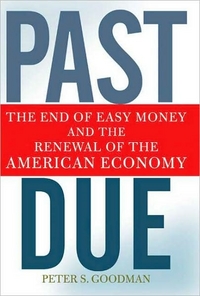

Purchase
Times Books
September 2009
On Sale: September 15, 2009
352 pages
ISBN: 0805089802
EAN: 9780805089806
Hardcover
Add to Wish List
Non-Fiction
How Main Street was hit by—and might recover from—the
financial crisis, by The New York Times’s national economics
correspondent When the financial crisis struck in
2008, Main Street felt the blow just as hard as Wall Street.
The New York Times national economics correspondent
Peter S. Goodman takes us behind the headlines and exposes
how the flow of capital from Asia and Silicon Valley to the
suburbs of the housing bubble perverted America’s economy.
He follows a real estate entrepreneur who sees endless
opportunity in the underdeveloped lots of Florida—until the
mortgages for them collapse. And he watches as an Oakland,
California-based deliveryman, unable to land a job in the
biotech industry, slides into unemployment and a homeless
shelter. As Goodman shows, for two decades Americans binged
on imports and easy credit, a spending spree abetted by
ever-increasing home values—and then the bill came
due. Yet even in a new environment of thrift and
pullback, Goodman argues that economic adaptation is
possible, through new industries and new safety nets. His
tour of new businesses in Michigan, Iowa, South Carolina,
and elsewhere and his clear-eyed analysis point the way to
the economic promises and risks America now faces.
Comments
No comments posted.
Registered users may leave comments.
Log in or register now!
| 


 © 2003-2024 off-the-edge.net
all rights reserved Privacy Policy
© 2003-2024 off-the-edge.net
all rights reserved Privacy Policy